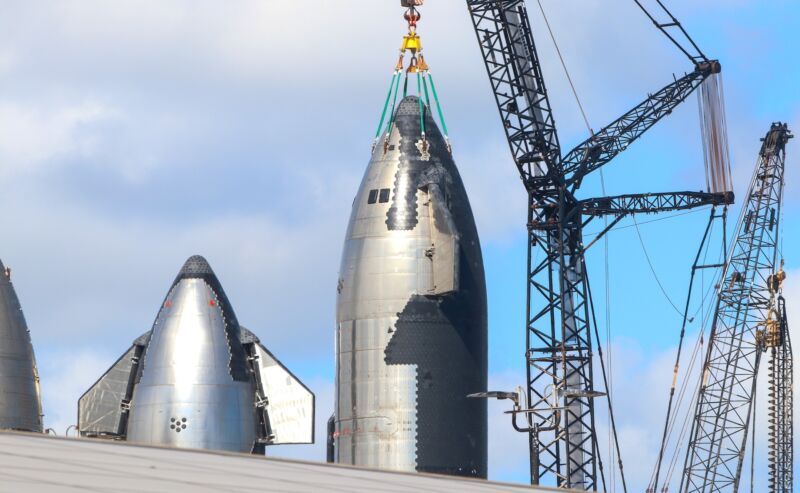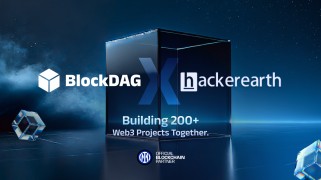
SpaceX appears on track for at least a preliminary propellant transfer test next year.
SpaceX and NASA could take a tentative step toward orbital refueling on the next test flight of Starship, but the US space agency says officials haven't made a final decision on when to begin demonstrating cryogenic propellant transfer capabilities that are necessary to return astronauts to the Moon.
SpaceX 似乎有望在明年至少进行一次初步的推进剂转移测试。SpaceX 和 NASA 可能会在 Starship 的下一次试飞中迈出试探性的一步,进行轨道加油,但美国航天局表示,官员们尚未就何时进行最终决定开始展示将宇航员送回月球所必需的低温推进剂传输能力。
NASA is keen on demonstrating orbital refueling technology, an advancement that could lead to propellant depots in space to feed rockets heading to distant destinations beyond Earth orbit. In 2020, NASA announced agreements with four companies—Lockheed Martin, United Launch Alliance, SpaceX, and a Florida-based startup named Eta Space—to prove capabilities in the area of refueling and propellant depots using cryogenic propellants.
美国宇航局热衷于展示轨道加油技术,这一进步可能会导致在太空中建立推进剂库,为前往地球轨道以外遥远目的地的火箭提供燃料。 2020 年,NASA 宣布与四家公司(洛克希德·马丁公司、联合发射联盟、SpaceX 和一家位于佛罗里达州的初创公司 Eta Space)达成协议,以证明使用低温推进剂在加油和推进剂库领域的能力。
These cryogenic fluids—liquid hydrogen, methane, and liquid oxygen—must be kept at temperatures of several hundred degrees below zero, or they turn into a gas and boil off. Russian supply freighters regularly refuel the International Space Station with hydrazine and nitrogen tetroxide, room-temperature rocket propellants that can be stored for years in orbit, but rockets using more efficient super-cold propellants have typically needed to complete their missions within hours.
这些低温流体——液氢、甲烷和液氧——必须保持在零以下几百度的温度,否则它们会变成气体并蒸发。俄罗斯补给货船定期为国际空间站补充燃料,肼和四氧化二氮是室温火箭推进剂,可以在轨道上储存数年,但使用更高效的超冷推进剂的火箭通常需要在数小时内完成任务。
NASA and industry engineers want to extend this lifetime to days, weeks, or months, but this requires new technologies to maintain the propellants at cryogenic temperature and, in some cases like Starship, to transfer the propellants from one vehicle to another.
NASA 和行业工程师希望将其寿命延长至数天、数周或数月,但这需要新技术将推进剂维持在低温下,并且在某些情况下(例如 Starship)将推进剂从一辆车转移到另一辆车上。
NASA and several companies are funding efforts in this area, called cryogenic fluid management. NASA's agreements from 2020 committed more than $250 million in government funding for cryogenic fluid management tests in space. These funding agreements announced in October 2020, called "Tipping Point" awards, require substantial private funding from the companies participating in the demonstrations.
美国宇航局和几家公司正在资助这一领域的工作,称为低温流体管理。 NASA 从 2020 年起签署的协议承诺为太空低温流体管理测试提供超过 2.5 亿美元的政府资助。这些于 2020 年 10 月宣布的资助协议被称为“引爆点”奖,需要参与示威活动的公司提供大量私人资金。
According to John Dankanich, who leads NASA's efforts in developing new capabilities for in-space transportation, there are "major technical obstacles" for cryogenic fluid management. The real challenge, he said, will be in validating things like automated couplers, flow meters, and advanced insulation all work together in microgravity. These, along with other technologies, are "highly interdependent" on one another to make cryogenic refueling a reality, he said.
领导美国宇航局开发太空运输新能力的约翰·丹卡尼奇表示,低温流体管理存在“重大技术障碍”。他说,真正的挑战是验证自动耦合器、流量计和先进绝缘材料等在微重力下都能协同工作。他说,这些技术与其他技术“高度相互依赖”,使低温加油成为现实。
Individual technologies necessary for in-orbit cryogenic refueling are at a stage of development where they are "ready now to go into flight systems," Dankanich said, either with a demonstration in space or on an operational spacecraft.
丹卡尼奇说,在轨低温加油所需的各项技术正处于开发阶段,“现在已准备好进入飞行系统”,要么在太空中进行演示,要么在运行的航天器上进行演示。
First, small steps
By the fourth anniversary of those awards, only SpaceX appears to have a chance to complete the tasks outlined in its "Tipping Point" award, valued at $53 million.
This test would involve transferring super-cold propellant from one tank to another inside a Starship spacecraft. It's a precursor to future, more complex demonstrations involving two giant Starships docked together in Earth orbit. Then SpaceX will be ready to send a Starship toward the Moon for a test landing without astronauts onboard. Once that is successful, NASA will clear Starship for a crew landing on the agency's Artemis III mission, marking the astronauts' return to the lunar surface for the first time since 1972.
首先,小步骤到这些奖项颁发四周年之际,似乎只有 SpaceX 有机会完成价值 5300 万美元的“引爆点”奖项中概述的任务。这项测试将涉及将超冷推进剂从一个储罐转移到另一个储罐星舰飞船内。这是未来更复杂的演示的先驱,涉及两艘巨型星际飞船在地球轨道上对接在一起。然后,SpaceX 将准备将一艘星际飞船送向月球,进行没有宇航员在场的测试着陆。一旦成功,美国宇航局将允许星际飞船宇航员登陆该机构的阿耳忒弥斯 III 任务,这标志着宇航员自 1972 年以来首次返回月球表面。
That's easier said than done; all worthy projects require a first step. That could happen as soon as the next full-scale test flight of SpaceX's gigantic Super Heavy booster and Starship rocket, a stainless steel launcher that stands nearly 400 feet (121 meters) tall. SpaceX has flown the rocket twice, most recently on November 18, when the Starship upper stage reached space for the first time before self-destructing just short of orbital velocity. This test flight was largely successful, achieving several key milestones such as stage separation and demonstrating improved reliability of the rocket's methane-fueled Raptor engines.
说起来容易做起来难;所有有价值的项目都需要迈出第一步。这可能会在 SpaceX 的巨型超重型助推器和 Starship 火箭(高度近 400 英尺(121 米)的不锈钢发射器)下一次全面试飞时发生。 SpaceX 已经发射了两次火箭,最近一次是在 11 月 18 日,当时 Starship 上级首次进入太空,然后在接近轨道速度时自毁。这次试飞取得了巨大成功,实现了几个关键里程碑,例如级分离,并展示了火箭甲烷燃料猛禽发动机可靠性的提高。
SpaceX has a $2.9 billion contract with NASA to provide a commercial Human Landing System (HLS) derived from Starship for the Artemis III mission, the first human landing mission planned during NASA's Artemis program. The readiness of the Starship landing craft and new commercial spacesuits are widely seen as drivers of the schedule for Artemis III, which is at risk of a delay from late 2025.
SpaceX 与 NASA 签订了价值 29 亿美元的合同,为 Artemis III 任务提供源自 Starship 的商业载人着陆系统 (HLS),这是 NASA Artemis 计划期间计划的首次载人着陆任务。星舰登陆艇和新型商业宇航服的准备就绪被广泛视为阿耳忒弥斯 III 计划的推动因素,该计划有可能从 2025 年底开始推迟。
Lakiesha Hawkins, deputy associate administrator for NASA's Moon to Mars program office, discussed the Artemis schedule Monday with a committee from the National Academies charged with reviewing the agency's workforce, infrastructure, and technology programs.
美国宇航局月球到火星项目办公室副副主任拉基莎·霍金斯周一与负责审查该机构劳动力、基础设施和技术项目的美国国家科学院委员会讨论了阿尔忒弥斯计划。
Hawkins did not verbally address SpaceX's plans for the next Starship test flight, but one of her slides noted SpaceX is "moving quickly" toward the third Super Heavy/Starship launch, and that this flight "will include a propellant transfer demonstration."
霍金斯没有口头提及 SpaceX 的下一次星际飞船试飞计划,但她的一张幻灯片指出,SpaceX 正在“快速推进”第三次超重型/星际飞船发射,并且这次飞行“将包括推进剂转移演示”。
However, Jimi Russell, a NASA spokesperson, suggested to Ars this is still only a possibility. When it does happen, the tank-to-tank propellant transfer within Starship will demonstrate moving 10 metric tons of liquid oxygen, according to the 2020 Tipping Point award terms. SpaceX is collaborating with NASA's Glenn Research Center and Marshall Space Flight Center on the demonstration.
然而,NASA 发言人吉米·拉塞尔 (Jimi Russell) 向 Ars 表示,这仍然只是一种可能性。根据 2020 年引爆点奖励条款,当它确实发生时,星际飞船内的坦克到坦克推进剂转移将证明可以移动 10 吨液氧。 SpaceX 正在与 NASA 格伦研究中心和马歇尔太空飞行中心合作进行演示。
"NASA and SpaceX are reviewing options for the demonstration to take place during an integrated flight test of Starship and the Super Heavy rocket," Russell said in a statement. "However, no final decisions on timing have been made."
拉塞尔在一份声明中表示:“美国宇航局和 SpaceX 正在审查在星际飞船和超重型火箭综合飞行测试期间进行演示的选择。” “但是,尚未就时间做出最终决定。”
Elon Musk, the company's founder and CEO, said on November 19 that hardware for the next Super Heavy/Starship test should be ready in three to four weeks. That projection seems dubious because SpaceX hasn't moved any pieces of the rocket to the launch pad for pre-flight testing, but a test flight early next year appears realistic.
该公司创始人兼首席执行官埃隆·马斯克 (Elon Musk) 11 月 19 日表示,下一次超重型/星舰测试的硬件应在三到四个星期内准备就绪。这一预测似乎很可疑,因为 SpaceX 尚未将火箭的任何部件移至发射台进行飞行前测试,但明年初的试飞似乎是现实的。
Other factors that could play into the Starship launch schedule include tune-ups or fixes to resolve problems that occurred on the November 18 test flight and receiving a new launch license from the Federal Aviation Administration.
可能影响星舰发射时间表的其他因素包括调整或修复以解决 11 月 18 日试飞中出现的问题以及获得美国联邦航空管理局的新发射许可证。
When SpaceX tries transferring 10 metric tons of propellant from tank to tank inside Starship, it will be at a scale never before attempted in space. But it's a small fraction of the amount of fuel and oxidizer needed to fill a Starship spacecraft in orbit. The ship's total propellant capacity is some 1,200 metric tons. After the tank-to-tank demonstration, SpaceX will attempt a ship-to-ship propellant transfer between two Starships linked together in Earth orbit.
当 SpaceX 尝试在 Starship 内将 10 吨推进剂从一个储罐转移到另一个储罐时,其规模将是以前在太空中从未尝试过的。但这只是填充轨道上的星舰航天器所需的燃料和氧化剂量的一小部分。该船的推进剂总容量约为 1,200 吨。在坦克对坦克演示之后,SpaceX 将尝试在地球轨道上连接在一起的两艘星际飞船之间进行船对船推进剂转移。
"That’s really when we start maturing the systems, and when it really gets exciting for HLS, because those are the building blocks that we need and, frankly, it’s never been done successfully in orbit," said Lisa Watson-Morgan, NASA's HLS program manager, in an interview with Ars last month.
NASA HLS 项目的丽莎·沃森-摩根 (Lisa Watson-Morgan) 表示:“这正是我们开始使系统成熟的时候,也是 HLS 真正令人兴奋的时候,因为这些是我们需要的构建模块,而且坦率地说,它从未在轨道上成功完成过。”上个月接受 Ars 采访时。
This discussion of propellant transfer leaves out critical work on Starship's life support system needed to accommodate crews on the lunar surface. SpaceX also needs to move forward with more Raptor engine testing, but the company recently completed a ground test to confirm it can reignite a Raptor engine in the extreme cold conditions resulting from extended time in space. SpaceX has also completed Raptor test-firings at different throttle settings to simulate how the engines must perform during a descent burn to reach the lunar surface.
关于推进剂转移的讨论忽略了星舰在月球表面容纳船员所需的生命支持系统的关键工作。 SpaceX 还需要推进更多的猛禽发动机测试,但该公司最近完成了一次地面测试,以确认它可以在太空中长时间停留而导致的极端寒冷条件下重新点燃猛禽发动机。 SpaceX 还完成了猛禽在不同油门设置下的试射,以模拟发动机在到达月球表面的下降燃烧过程中必须如何运行。
Others in the running
其他人在奔跑中
The other companies working with NASA on cryogenic fluid management are still at least a couple of years away from any meaningful flight demonstrations.
与美国宇航局合作进行低温流体管理的其他公司距离任何有意义的飞行演示至少还需要几年的时间。
Lockheed Martin's demo, expected to use liquid hydrogen, is scheduled for 2025 and will test 15 key cryo fluid management technologies. Eta Space is developing a small-scale fuel depot to demonstrate long-duration cryogenic storage of liquid oxygen for nine months. This mission, known as LOXSAT, is scheduled to launch with Rocket Lab in 2025, according to Dankanich.
洛克希德·马丁公司的演示预计将使用液氢,计划于 2025 年进行,并将测试 15 项关键的低温流体管理技术。 Eta Space 正在开发一个小型燃料库,以演示液氧的长期低温储存长达九个月。 Dankanich 表示,这项名为 LOXSAT 的任务计划于 2025 年与 Rocket Lab 一起发射。
Liquid hydrogen is the smallest molecule and needs to be stored at colder temperatures than methane or liquid oxygen. It is the most efficient rocket fuel in common use, but is prone to leaks.
液氢是最小的分子,需要在比甲烷或液氧更低的温度下储存。它是常用的最高效的火箭燃料,但很容易泄漏。
United Launch Alliance is working on a liquid hydrogen/liquid oxygen "smart propulsion cryogenic system" on a Vulcan Centaur upper stage, testing precise tank pressure control, tank-to-tank transfer, and multi-week propellant storage, according to NASA. Dankanich said Monday ULA's flight demonstration is scheduled for 2026.
据美国宇航局称,联合发射联盟正在火神半人马座上级开发液氢/液氧“智能推进低温系统”,测试精确的储罐压力控制、储罐到储罐的传输以及数周的推进剂储存。丹卡尼奇周一表示,ULA 的飞行表演定于 2026 年进行。
Like Starship, Blue Origin's human-rated lunar lander for Artemis will rely on orbital refueling but with liquid hydrogen. Blue Origin's approach to cryogenic fluid management involves actively controlling the temperature of liquid hydrogen using cryocoolers, while SpaceX is using passive thermal control on Starship.
与“星际飞船”一样,蓝色起源的阿耳忒弥斯载人月球着陆器也将依靠轨道加油,但使用液态氢。 Blue Origin 的低温流体管理方法涉及使用低温冷却器主动控制液氢的温度,而 SpaceX 则在 Starship 上使用被动热控制。
Dankanich said Blue Origin plans "multiple interim demonstrations" with its cryogenic systems before its lander is certified to carry astronauts to the Moon's surface, but he didn't offer a schedule for those flight tests leading up to Blue Origin's first human landing mission, slated for no sooner than 2029.
丹卡尼奇表示,蓝色起源计划在其着陆器获得将宇航员运送到月球表面的认证之前,对其低温系统进行“多次临时演示”,但他没有提供蓝色起源首次载人登陆任务之前的飞行测试时间表。不早于 2029 年。
Aside from technical hurdles, Dankanich said there's another potential barrier to widespread advancements in cryogenic refueling and propellant depots. For most of the tech demos, NASA is partnering with companies on a cost-sharing basis, reducing the cost to taxpayers. NASA would like to use data from the demonstrations to provide "ground truth" for models to predict the behavior of cryogenic fluids in space. Because NASA is a government agency, these models would be available to a broad cross-section of researchers and engineers.
丹卡尼奇表示,除了技术障碍之外,低温加油和推进剂库的广泛进步还存在另一个潜在障碍。对于大多数技术演示,美国宇航局正在与公司在成本分摊的基础上合作,从而降低纳税人的成本。美国宇航局希望利用演示数据为模型提供“地面真相”,以预测太空中低温流体的行为。由于 NASA 是一个政府机构,因此这些模型将可供广泛的研究人员和工程师使用。
Under the terms of these public-private partnerships, industry retains ownership, and these companies may consider details about their technology proprietary, limiting NASA's ability to share lessons learned with academic institutions or other outside groups.
根据这些公私合作伙伴关系的条款,工业界保留所有权,这些公司可能会考虑有关其专有技术的细节,从而限制了 NASA 与学术机构或其他外部团体分享经验教训的能力。
“In some cases, we can't force them to even instrument the systems in the way that we need them instrumented in order to get the data that we would need to validate," Dankanich said. "If they're willing to provide the telemetry that we need, then we may, on the NASA side, be able to get some of that information. But we can't disclose the design details or the specifics to the community, which is necessary for model validation.
丹卡尼奇说:“在某些情况下,我们甚至不能强迫他们按照我们需要的方式对系统进行检测,以获得我们需要验证的数据。”“如果他们愿意提供我们需要的遥测技术,那么我们在美国宇航局方面可能能够获得其中一些信息。但我们不能向社区透露设计细节或具体细节,这是模型验证所必需的。
"Data right restrictions are a big challenge with the way that we're procuring all of our cryogenic fluid management systems," Dankanich said. "At the same time, the outlook is pretty good, right? We do have the SpaceX large-scale cryo settling propellant transfer planned for next year."
“数据权限制对于我们采购所有低温流体管理系统的方式来说是一个巨大的挑战,”丹卡尼奇说。 “与此同时,前景相当不错,对吧?我们确实计划明年进行 SpaceX 大规模低温沉降推进剂转移。”


 Optimisus
Optimisus Optimisus
Optimisus Optimisus
Optimisus Thecryptoupdates
Thecryptoupdates DogeHome
DogeHome The Crypto Times
The Crypto Times Coincu
Coincu Optimisus
Optimisus Coin_Gabbar
Coin_Gabbar






















